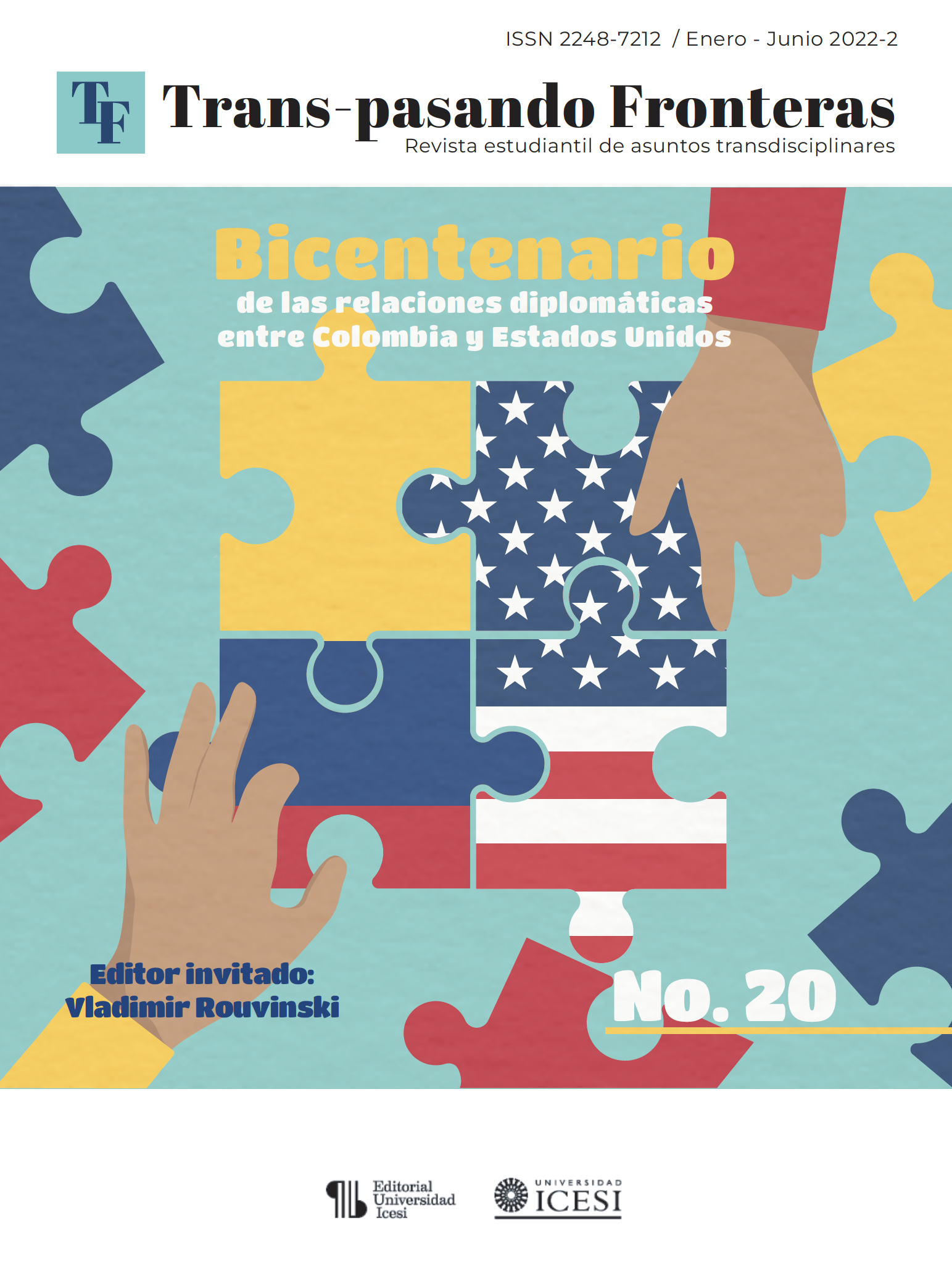Political Risk in Latin America
DOI:
https://doi.org/10.18046/retf.i20.5753Keywords:
Political Risk, Economic Performance, Economic Policy.Abstract
Abstract
Political risk (PR) is a fascinating concept in the political science literature, yet researchers could do more to evaluate PR in Latin America. In this paper, we contribute to filling the gap by presenting the risks investors must consider when building portfolios in developing economies, such as changes in economic policy or impeachment processes. As for the methodology, widely accepted statistical methods are used to test our hypotheses as well as reliable data. Regarding our findings, we discovered that political color determines economic policy (to a certain degree) and that macroeconomic consequences vary based on policy. In addition, we indicate the adverse effects that specific economic policies and impeachment processes have on Latin American stock markets. In conclusion, this research proposed to advance the political science literature and finance interception, and it does it by motivating the discussions.
Keywords: Political Risk, Economic Performance, Economic Policy.
Downloads
References
Ahmed, W. M. A. (2017). The impact of political regime changes on stock prices: the case of Egypt. International Journal of Emerging Markets (Vol. 12, Issue 3). https://doi.org/10.1108/IJoEM-12-2015-0258
Al-Ississ, M. (2015). The Cross-Border Impact of Political Violence. Peace Economics, Peace Science and Public Policy, 21(2), 239–272. https://doi.org/10.1515/peps-2014-0046
Alesina, A., & Rosenthal, H. (1995). Partisan Politics, Divided Government, and the Economy (Political Economy of Institutions and Decisions). Cambridge: Cambridge University Press. doi:10.1017/CBO9780511720512
Asaad, Z. A., & Marane, B. M. (2020). Corruption, Terrorism, and the Stock Market: The Evidence from Iraq. The Journal of Asian Finance, Economics, and Business, 7(10), 629–639. https://doi.org/10.13106/jafeb.2020.vol7.no10.629
BBC. (2012, January 30). Chávez Amenaza Con nacionalizar bancos de Venezuela. BBC News Mundo. Retrieved December 8, 2022, from https://www.bbc.com/mundo/ultimas_noticias/2012/01/120129_ultnot_venezuela_chavez_amenaza_nacionalizar_bancos_jrg
Bilson, C., Brailsford, T. J., & Hooper, V. J. (2011). The Explanatory Power of Political Risk in Emerging Markets. SSRN Electronic Journal. https://doi.org/10.2139/ssrn.808967
Burrows, D. (2020, 17). How the Stock Market Performed During the Clinton Impeachment. Yahoo Finance. https://finance.yahoo.com/news/stock-market-performed-during-clinton-203753587.html
Campello, D., & Zucco, C. (2012). It is the (World) Economy, Stupid! International Determinants of Presidential Success. SSRN Electronic Journal, April 2013. https://doi.org/10.2139/ssrn.2182187
Diamonte, R. L., Liew, J. M., & Stevens, R. L. (1996). Political risk in emerging and developed markets. Financial Analysts Journal, 52. https://doi.org/10.2469/faj.v52.n3.1998
Dimic, N., Orlov, V., & Piljak, V. (2015). The political risk factor in emerging, frontier, and developed stock markets. Finance Research Letters, 15, 239–245. https://doi.org/10.1016/j.frl.2015.10.007
Domm, P. (2019). Investors are betting on a Clinton-like market rally if House impeaches Trump. CNBC. https://www.cnbc.com/2019/09/25/how-to-trade-impeachment.html
Faccio, M. (2006). Politically connected firms. American Economic Review, 96(1), 369–386. https://doi.org/10.1257/000282806776157704
Fergusson, L., & Borrero, P. Q. (2018). Economía política de la política económica. Universidad de los Andes. Departamento de Economía.
FRB: What is an acceptable level of inflation? (2011, June 22). Board of Governors of the Federal Reserve System. https://www.federalreserve.gov/faqs/5D58E72F066A4DBDA80BBA659C55F774.htm#:%7E:text=The%20Federal%20Reserve%20has%20not,percent%20or%20a%20bit%20below.
Gómez-Pineda, J. G. (2010a). El trilema y los dilemas de la política monetaria. Capítulo 11. El trilema y los dilemas de la política monetaria. Pág.: 203-239.
Gómez-Pineda, J. G. (2010b). La relación entre el dinero y la inflación. Capítulo 4. La relación entre el dinero y la inflación. Pág.: 61-78.
Hu, G., & Wang, Y. (2018). Political connections and stock price crash risk: The role of intermediary information disclosure. China Finance Review International, 8(2), 140–157. https://doi.org/10.1108/CFRI-06-2017-0079
Jensen, N. (2008). Political risk, democratic institutions, and foreign direct investment. The Journal of Politics, p. 70. https://doi.org/10.1017/S0022381608081048
Lee, C. M. C., & Ng, D. (2009). Corruption and International Valuation: Does Virtue Pay? The Journal of Investing, 18(4), 23–41. https://doi.org/10.3905/joi.2009.18.4.023
Lehkonen, H., & Heimonen, K. (2015). Democracy, political risks, and stock market performance. Journal of International Money and Finance, 59, 77–99. https://doi.org/10.1016/j.jimonfin.2015.06.002
Levitsky S. & Roberts K. M. (2011). The resurgence of the Latin American left. Johns Hopkins University Press.
Medina, O. (2021). Colombian Candidate Feared by Investors Leads Presidential Poll. Bloomberg. https://www.bloomberg.com/news/articles/2021-11-02/candidate-feared-by-investors-leads-colombian-presidential-poll
Navarro, A. (2021). Colombia Presidential Front-Runner Would End New Oil Exploration. Bloomberg. https://www.bloomberg.com/news/articles/2021-11-21/colombia-presidential-front-runner-would-end-new-oil-exploration
Ng, D. (2006). The impact of corruption on financial markets. Managerial Finance, 32(10), 822–836. https://doi.org/10.1108/03074350710688314
Sattler, Thomas, Do Market Punish Left Governments? (2013). Journal of Politics, Vol. 75, No. 2, pp. 343–356, Available at SSRN: https://ssrn.com/abstract=1641757
Statista. (2022, 29 julio). Países por tasa de inflación en América Latina y el Caribe 2021. https://es.statista.com/estadisticas/1280168/paises-por-tasa-de-inflacion-en-america-latina-y-el-caribe/#:%7E:text=En%202021%2C%20Venezuela%20ocup%C3%B3%20la,tasa%20del%200%2C13%25.
Tuncay, M. (2018). Do political risks matter in the financial markets? Evidence from Turkey. Eurasian Business Review, 8(2), 209–227. https://doi.org/10.1007/s40821-017-0077-5
Wang, H. (2019). The causality link between political risk and stock prices: A counterfactual study in an emerging market. Journal of Financial Economic Policy, 11(3), 338–367. https://doi.org/10.1108/JFEP-07-2018-0106
Wisniewski, T. P. (2015). Is There a Link between Politics and Stock Returns? A Literature Survey. SSRN Electronic Journal. https://doi.org/10.2139/ssrn.2690852
Downloads
Published
Issue
Section
License
Copyright (c) 2022 David Soto Bello

This work is licensed under a Creative Commons Attribution-NonCommercial-NoDerivatives 4.0 International License.
Trans-pasando Fronteras provides immediate open access to its content on the principle that making research freely available to the public supports a greater global exchange of knowledge.
© Authors hold copyright and publishing rights without restrictions but in accordance with the CC license.
All the material in this publication can be reproduced as long as reference is made to title, author and institutional source.







